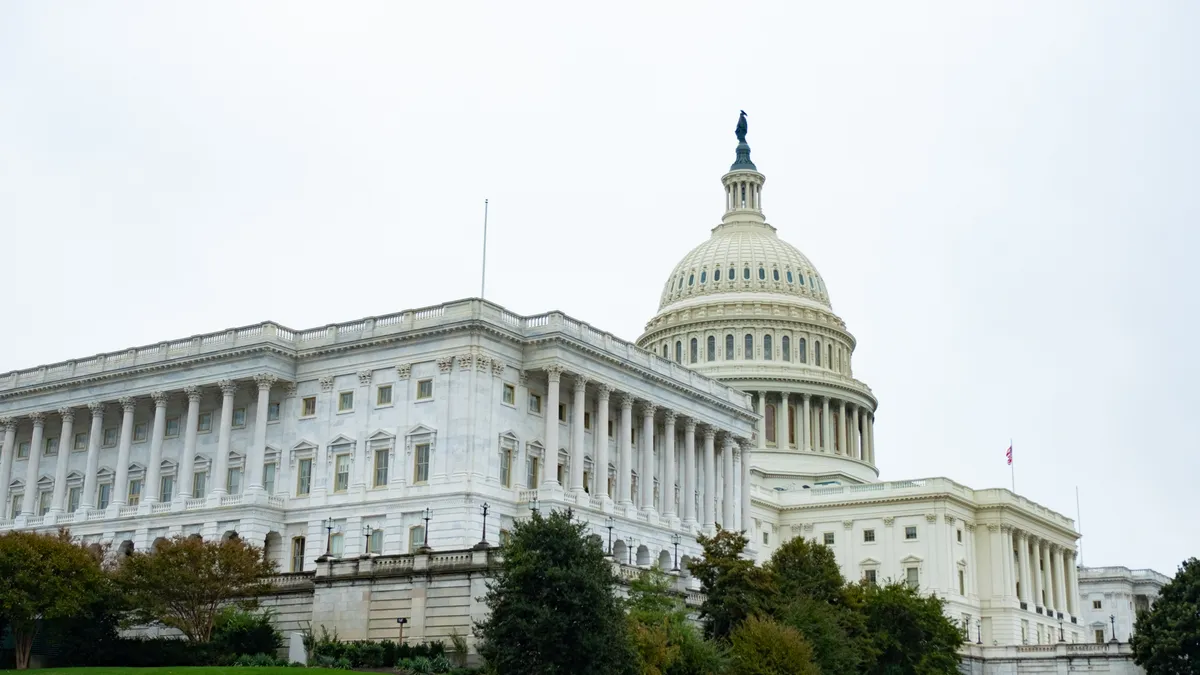Dive Brief:
-
A bipartisan group of lawmakers this week reintroduced the College Transparency Act, which would allow the federal government to collect student-level data on college outcomes, such as completion rates and post-graduate earnings.
-
Although 270 Congressional lawmakers co-sponsored a version of the bill last year, the measure didn't make it out of committee.
-
An industry group for private nonprofit colleges and the legislator who wrote the provision that would be overturned oppose the bill, citing student privacy concerns. But advocates say growing support for the measure will make its passage more likely.
Dive Insight:
Federal law prohibits the government from collecting student-level data. The College Transparency Act seeks to overturn this ban in order to better track student outcomes and help families determine which schools offer the best return on their investment, according to a one-page summary of the bill.
The measure would address pervasive flaws in higher education data collection, advocates for the bill say. For instance, earnings data published in the College Scorecard, an online consumer tool that contains information about institutions, only reflects students who receive Title IV financial aid, leaving out the multitude of learners who fund their education through other means.
"You have huge swaths of students who aren't captured," said Amy Laitinen, director for higher education at left-leaning think tank New America.
Still, the bill has its detractors. Rep. Virginia Foxx, R-N.C., who authored the provision the bill would overturn, says the measure would violate student privacy. "The Department of Education has no business housing all students' personal information regardless of whether or not they participate in federal student aid programs," Foxx said in a statement emailed to Higher Ed Dive.
The bill attempts to address privacy concerns. It prohibits law enforcement from using the data, notifies students about the data collection, shields personally identifiable information and requires regular audits of the data collection system.
Laitinen, in a blog post co-authored for New America, points to Foxx as the main reason the bill didn't progress during the last Congressional session, when lawmakers passed a flurry of other higher ed-related laws, including those that streamlined the Free Application for Federal Student Aid and restored Pell Grant eligibility to incarcerated students.
"It's crazy that one member has been able to block it up until this point," Laitinen told Higher Ed Dive.
The National Association of Independent Colleges and Universities, which represents private institutions, opposes the bill on similar grounds as Foxx. NAICU instead supports the Student Right to Know Before You Go Act, which would require encryption technology to produce data on outcomes such as graduation rates and debt levels.
Advocates of the College Transparency Act say growing support for the legislation could help it pass Congress this year. Almost 200 organizations — including higher ed associations and student-focused groups — voiced support for the bill in 2019.
"Students are clamoring for this type of information about the value they'll receive from their postsecondary investment," said Mamie Voight, interim president of the Institute for Higher Education Policy, which supports the bill. "We should be responsive to those needs.















